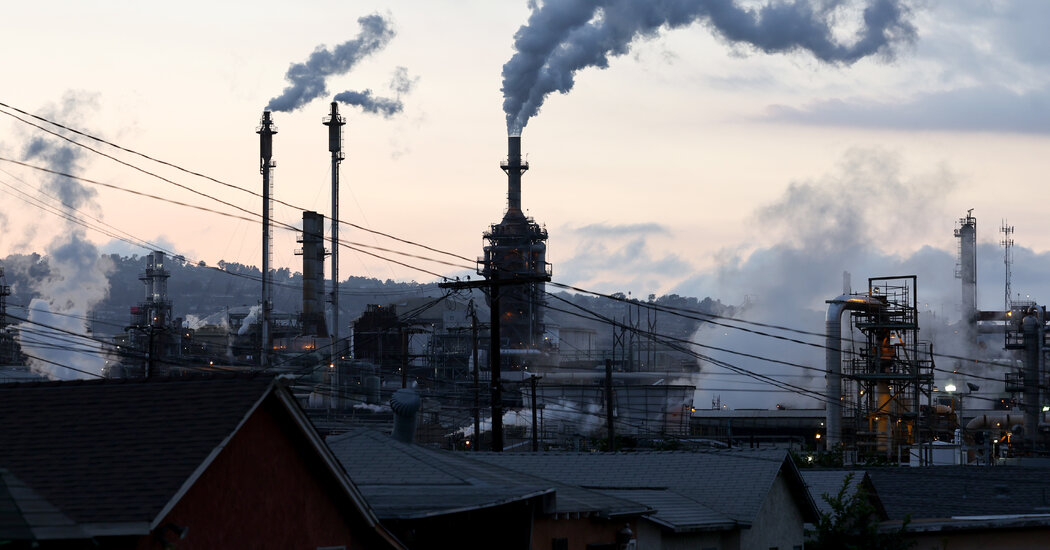The California Legislature this week passed a landmark bill that would require major companies to publicly disclose their greenhouse gas emissions, a move with national and global repercussions in governments’ efforts to fight climate change.
A spokesman for Gov. Gavin Newsom, a Democrat, declined on Wednesday to say whether he would sign the bill.
If enacted, about 5,000 companies that do business in California would be compelled to report the amount of greenhouse gas pollution that is directly emitted by their operations, and also indirect emissions from things like employee travel, waste disposal and supply chains.
The law would apply to public and private businesses that make more than $1 billion annually and operate in California. But because it is the world’s fifth-largest economy, California often sets the trend for the nation.
Many of the affected businesses would include oil and gas giants like Chevron, major financial institutions like Wells Fargo and global brands like Apple. The companies would be required to disclose all their emissions starting in 2027.
The California legislation goes beyond a measure proposed by the Securities and Exchange Commission, which would require only publicly-traded companies to disclose their emissions. That proposal, which has yet to be finalized, is facing strong opposition from conservatives and business groups.
Opponents of the California measure said compliance would be expensive and onerous, particularly the requirement that businesses accurately track and measure all emissions. For example, clothing manufacturers worry that they would have to report the emissions associated with growing, weaving and transporting textiles, in addition to reporting the direct emissions from their garment manufacturing plants.
The legislation “is a costly mandate that will negatively impact businesses of all sizes in California and will not directly reduce emissions,” said Denise Davis, an executive vice president at the California Chamber of Commerce.
But supporters of disclosure said transparency would nudge corporations to reduce the pollution that is dangerously heating the planet and act as a bulwark against greenwashing, false or exaggerated claims by companies about their efforts to fight climate change. Microsoft, Ikea, Patagonia and several other major companies backed the bill.
“We need the full picture to make the deep emissions cuts that scientists tell us are necessary to avert the worst impacts of climate change,” said the lead sponsor of the law, State Senator Scott Wiener, a Democrat from San Francisco. “These disclosures are simple but transformational,” he said. “We need strong transparency to create a level playing field among private and public companies. Once again, California is leading the nation on essential climate action.”
Governor Newsom, who has built a national profile in part on his push to make California a global leader in climate policy, has been uncharacteristically quiet about the measure.
While the governor has championed aggressive new climate measures, including $54 billion in climate spending, his administration’s finance department issued an analysis in July that opposed the emissions reporting legislation. The analysis said the measure would require 12 full-time workers to administer the program and result in costs that were not included in the state’s current spending plan.
California has a long history of enacting climate change policies that are later adopted by other states and eventually the federal government. Both the Obama administration and the Biden administration have modeled their regulations to accelerate the use of electric vehicles on policies first enacted in California.
Mr. Newsom has until Oct. 14 to veto the bill or it automatically becomes state law.











